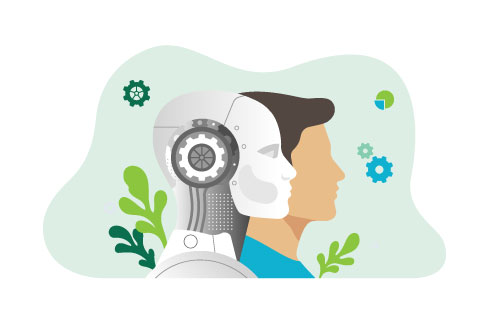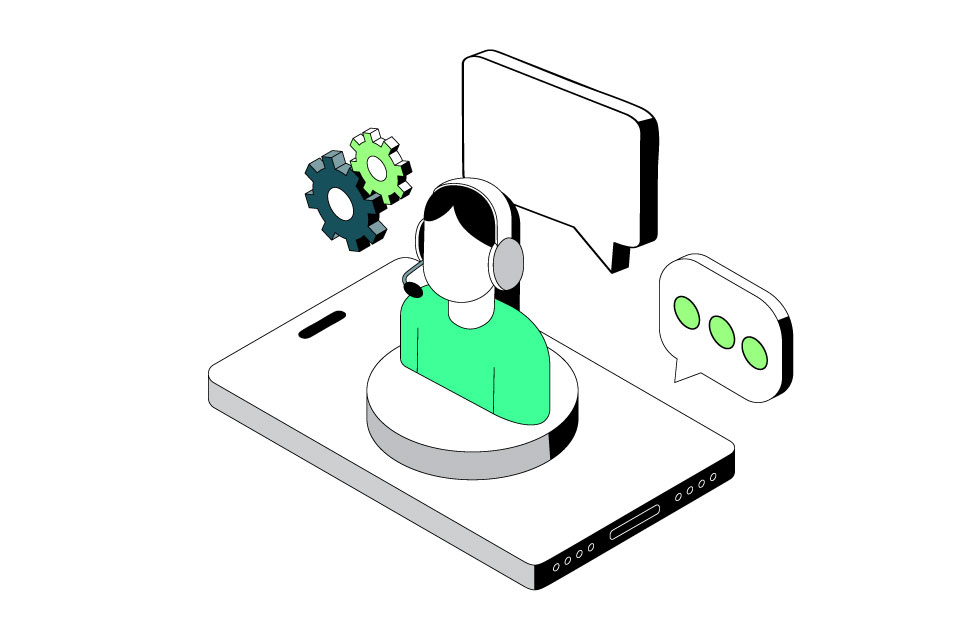Regular readers will be well aware that the deployment of new technology, including AI, has been a recurring theme for The Institute and our members. As these technologies continue to develop, there is no doubt that they will have a seismic, and hopefully positive, impact on the way customer service is delivered.
Along the way, there has been – and will continue to be – a fair share of missteps and misuses. The FT last week reported that SoftBank is developing a novel AI solution’ that dials down an angry customer’s tone in real time, while keeping their words intact, in an apparent attempt to put the listener at ease.
For me, this treats the symptom, rather than addressing the cause – the customer hostility itself. We have been driving to deal with the root cause of this issue through Service with Respect for four years. Putting a veil over the problem, whilst it may alleviate some of the pain, somewhat misses the point: abusive behaviour should not be tolerated full stop.
While I understand and fully support a desire to protect our customer service staff from abusive customers, I’m left wondering – who would this technology really benefit? It could serve to put distance between the customer and the person trying to serve them, increasing the chance that import nuances are missed, potentially frustrating the customer even further. Whilst it might spare some agents some of the irate responses they receive from particularly challenging customers, it risks causing a further breakdown in communication, and a loss of the connection so valued in human-focused customer interactions.
What we need is a policy to deal directly and firmly with abusive customers with escalation and ultimately police intervention where necessary, and to train and support appropriately with how to deal with more frustrated customers – there is a difference between the two!
To me, this latest concept (and whether it ever gets deployed in the wild remains to be seen) falls short of the direction we need to be heading in, not least because it removes the ability for customers to communicate authentically.
Authenticity is essential
When it comes to delivering an excellent service experience, authenticity across every touchpoint is crucial. Truly understanding a customer’s situation is an essential part of a service professional’s role, not least so that they can empathise with the customer and endeavour to deliver a fully personalised and helpful solution.
That said, we shouldn’t ignore potential solutions to protect our people from violence, abuse, or customer rage. However, there are better measures to take, such as training and empowering staff, and encouraging better reporting on incidents of abuse. Technology – like that which one of our members, Cabot Financial demonstrated last week at a member event – that can monitor customer conversations, flag problematic interactions, and support frontline staff in real-time can also play an important role.
The true potential of artificial intelligence in service
For the more complex elements of service, a human touch remains more effective. As customers, that back-and-forth interaction, emotional intelligence, and engagement can be a crucial differentiator.
But for more granular functions, data mining, understanding customer preferences, and transitional processes, technology is invaluable. As we look to drive growth and productivity as an economy, AI will increasingly help handle routine requests, freeing up resources to focus on more productive things.
The quantity of data AI can process and the speed at which it can learn and iterate, means service-led businesses will be able to deliver a unique, personalised service experience to every customer across a range of different scenarios. but the human will always continue to be a vital part of the whole experience – keeping the customer in the loop!



